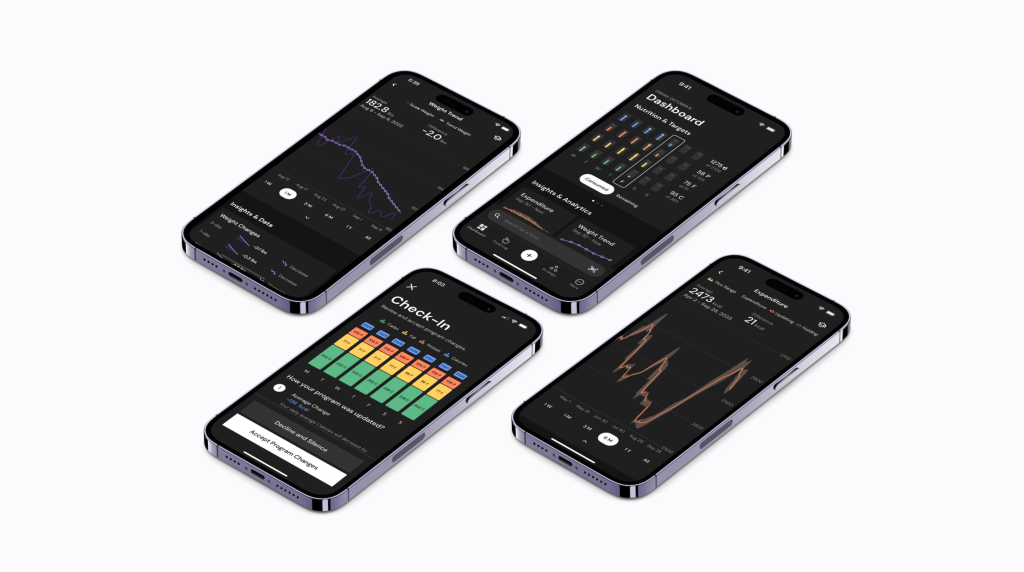Most people start dieting because they want to feel healthy and look good. They take up strenuous exercise regimes and may even starve themselves to achieve a target weight. While they may reach their desired number on the scale, it can be at the cost of their mental health. They feel deprived from the basic joy of enjoying a meal and FOMO (feeling of missing out) may translate into anger and frustration.
In the past, calorie counting was all the rage, but now focusing on macronutrients is often considered a healthier alternative. Instead of micromanaging your diet by obsessing over the number of calories in each bite, start looking at the big picture instead. By focusing on your intake of carbohydrates, proteins, and fats, you’ll be focusing on quality not quantity. It’s usually a more relaxed approach, which can be easily maintained over the long term.
Say goodbye to overthinking and start a healthier relationship with your food. Try these five tips to break free from the shackles of micromanaging your diet and start enjoying meals again.
1. Let Technology Help
You may have had many diet buddies in the past, but the enthusiasm wears out eventually. Try depending on technology instead of (or in addition to) friends. Find the best macro tracking app that suits your personality and schedule. Not only do such apps have food logging and weight tracking features, but they can also provide nutritional coaching. It’s an all-in-one package for a healthy lifestyle.
Create a health-focused kitchen by buying smart scales, which help you measure the nutritional content of your ingredients. Or perhaps get a smart blender, which gives you real time feedback on the nutritional value of your smoothie. Investing in gadgets that support healthy eating is a great idea. If it feels easy to whip up a healthy meal, you’ll be less likely to grab some fast food.
2. Practice Mindful Eating
The biggest pitfall of this fast-tracked world is that everyone is in a rush. Meals are often eaten on-the-go or in front of the television. Food is gobbled down instead of being enjoyed. Mindful eating can be more effective than micromanaging your diet. It teaches you to use all five senses while eating your meal. When you think about the colorful veggies, the crunchy lettuce, and the tangy salad dressing, you will appreciate every bite.
Chew slowly and savor your meal. This can help you reconnect with the pleasure of eating. Keep in mind, you won’t be able to focus on your food when you are watching a screen. People who eat in noisy environments often end up eating more as their mind is distracted. When you focus on your senses, you are able to understand and follow your body’s needs better.
3. Listen to Your Body
Instead of micromanaging what goes in your body, start listening to the signals your body gives out. To avoid overeating, know these fullness cues and follow their commands. A simple trick is to fill half your plate. You can always take another serving, but eating extra just to clean your plate is not a good habit. Similarly, don’t keep eating just because everyone else has not finished. Get rid of any such external cues which control your eating behavior.
Another essential step is to recognize the difference between physical hunger and emotional cravings. Some people eat when they are bored, others eat when they are sad. Separate your mood from your food by finding replacement coping mechanisms for your emotions. Instead of resorting to comfort food, try hitting the gym and burn the stress along with the calories.
4. Stay Flexible, Stay Positive
It’s natural to stumble on your diet occasionally. Don’t be too hard on yourself and just get back on track. Micromanagement may make you feel unnecessarily guilty if your calorie count is even slightly off track. The stress is evident when you find yourself preoccupied with calories in social gatherings and celebrations. By focusing on portion control, you can stay healthy without missing the fun.
Make sure you haven’t created extremely strict rules for yourself as that is just setting yourself up for disappointment. Social media influencers often make habits sound easier than they are, so don’t follow anyone blindly. Create a diet plan and exercise regime according to your body and your schedule. It should be sustainable so you can maintain your weight even after shedding extra pounds.
5. Get Professional Help
If you’re unable to break free from micromanaging your diet, ask for professional advice from a healthcare provider. A registered dietician or nutritionist can provide personalized advice based on your body type and clinical status. Debunk all myths, so you develop a more realistic approach to dieting.
Sometimes, the lack of results aren’t due to lack of effort but instead due to an underlying clinical issue. Discuss your diet plans with your doctor to get a medical perspective as well. A balanced lifestyle is necessary, so incorporate regular exercise, stay hydrated, and prioritize sleep for best results. Healthy habits improve overall well being, boosting your mood and confidence.
Food is meant to be a source of pleasure, not stress. While calorie-counting may provide short-term results, the long-term consequences on your mental and emotional well-being can be significant. Shift your mindset from counting calories to focusing on the quality of your food. This not only nourishes your body but helps you enjoy your meals without diving into the abyss of micromanagement.

